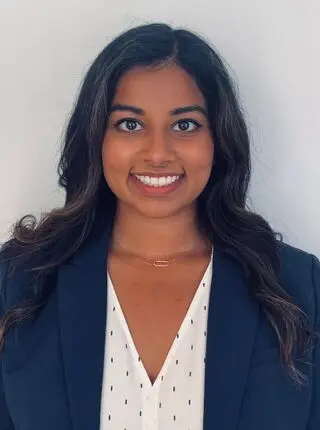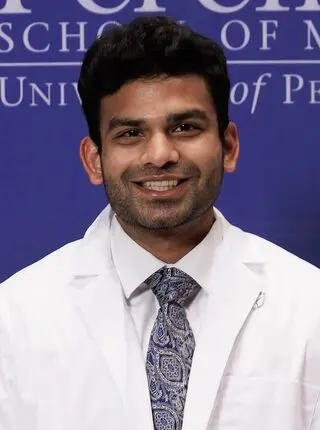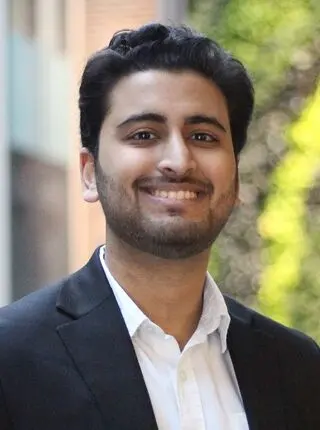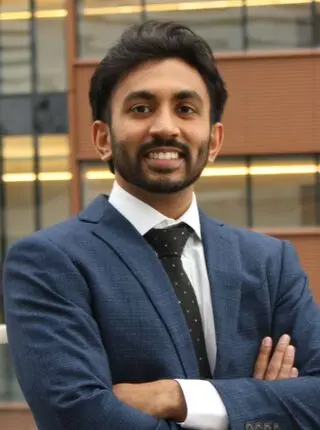Penn Neurosurgery Skull Base Outcomes Research Group
Our skull base outcomes group focuses on clinical research dedicated to understanding and improving outcomes for patients with skull base tumors. The team combines surgical outcomes with molecular and imaging studies to identify predictors of success and complications, optimizing individualized treatment plans.
Collaboration is central to the lab's mission, with a strong emphasis on interdisciplinary work. The team collaborates closely with specialists in ENT, radiation oncology, oculoplastic, and other fields to address the complexities of skull base tumors from multiple perspectives. Additionally, our team participates in multi-center studies with partner institutions, broadening the research scope and contributing to more robust data that can lead to improved clinical practices and therapeutic innovations. Through these collaborations, we aim to set new standards for patient care and advance treatment strategies for skull base tumors.
Group Members
-
Sabrina Heman-Ackah, MD, DPhil
Neurosurgery Resident
Sabrina Heman-Ackah, MD, DPhil
Neurosurgery Resident
-
Sonia Ajmera, MD
Neurosurgery Resident
Sonia Ajmera, MD
Neurosurgery Resident
-
Read More about Sai Mannam
Sai Mannam
Sai Mannam
Sai is an M.D. candidate with a background in computational neuroscience, dedicated to advancing neurosurgery through research, education, digital content creation, and innovation. Inspired by his grandfather's battle with glioblastoma, Sai developed a strong interest in understanding the connection between the mind and the brain. He has published research on various topics in neuroscience and neurosurgery, particularly in the areas of tumor, vascular, and spine conditions. Sai co-founded a summer neurosurgery course designed to help early-year medical students explore careers in neurosurgery and related fields. Additionally, he hosts the podcast "Strive: Exploring Mind, Medicine, and Motivation," where he delves into the complexities of the human mind and experience.
-
Read More about Min Jae Kim
Min Jae Kim
Min Jae Kim
Min Jae is an MD/PhD student interested in utilizing advanced neuroimaging techniques to characterize local radiomic biomarkers and global neural circuitry involved in skull-base tumors. Specifically, his research interest lies in understanding how brain circuitry can help explain preoperative symptomologies associated with meningioma, and how network-level intervention can improve post-operative prognosis for patients. His goal is to identify precise neural “hubs” responsible for distinctive symptomologies and side effects to help innovate minimally invasive procedures.
-
Read More about Om Gandhi
Om Gandhi
Om Gandhi
Om, a native of Barrington, Illinois, is a student at the University of Pennsylvania pursuing a dual B.A. in Neuroscience & Public Health and an M.S. in Bioengineering. His research focuses on promoting immunotherapy in solid, nervous system tumors through manipulating the tumor microenvironment and engineering stem cells, while his clinical interest in the Jackson Lab lies in utilizing various markers to develop tailored prognostication strategies for meningioma recurrence and survival. Beyond his research, Om holds leadership positions in several healthcare-related organizations at Penn, oversees programs to promote mental healthcare in vulnerable communities, and volunteers in clinics serving low-income populations in Chicago and Philadelphia.
-
Read More about Kristin Park
Kristin Park
Kristin Park
Kristen Park is a 4th year MD-PhD student in the neuroscience graduate program. She is currently doing her thesis in Hongjun Song’s lab, investigating the functional consequences of neuron-glioblastoma synapses on the nervous system. Clinically, she is interested in skull base surgery and neuro-oncology and is looking forward to a career as a neurosurgeon-scientist.
-
Read More about Sawaan Patel
Sawaan Patel
Sawaan Patel
Saawan Patel is a third-year medical student at the Perelman School of Medicine at the University of Pennsylvania. He graduated from Baylor University with a BBA in Business Fellows and Management and hopes to explore the intersection of surgical outcomes and healthcare management.








